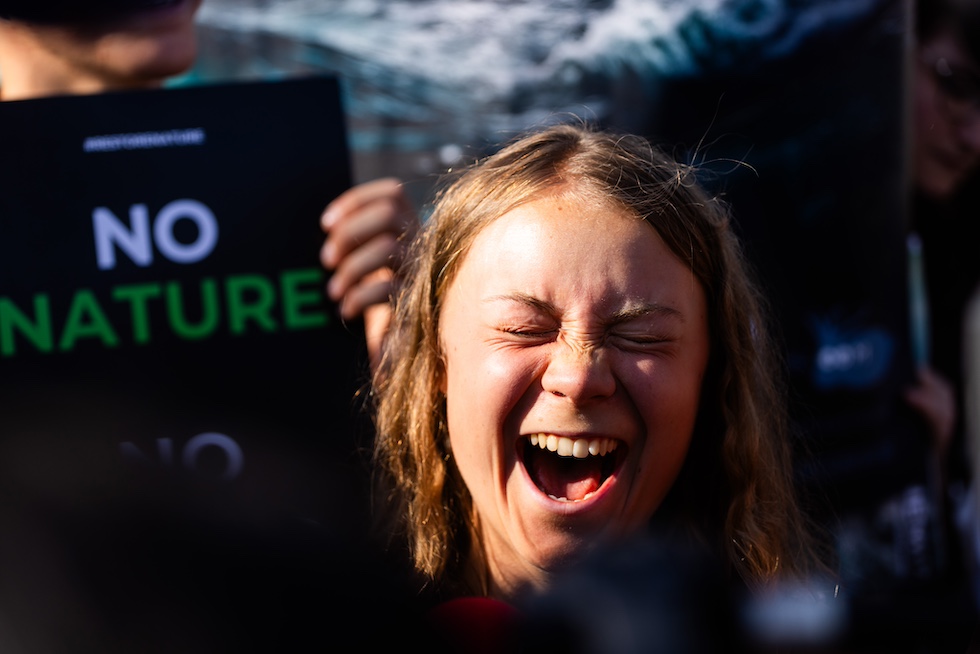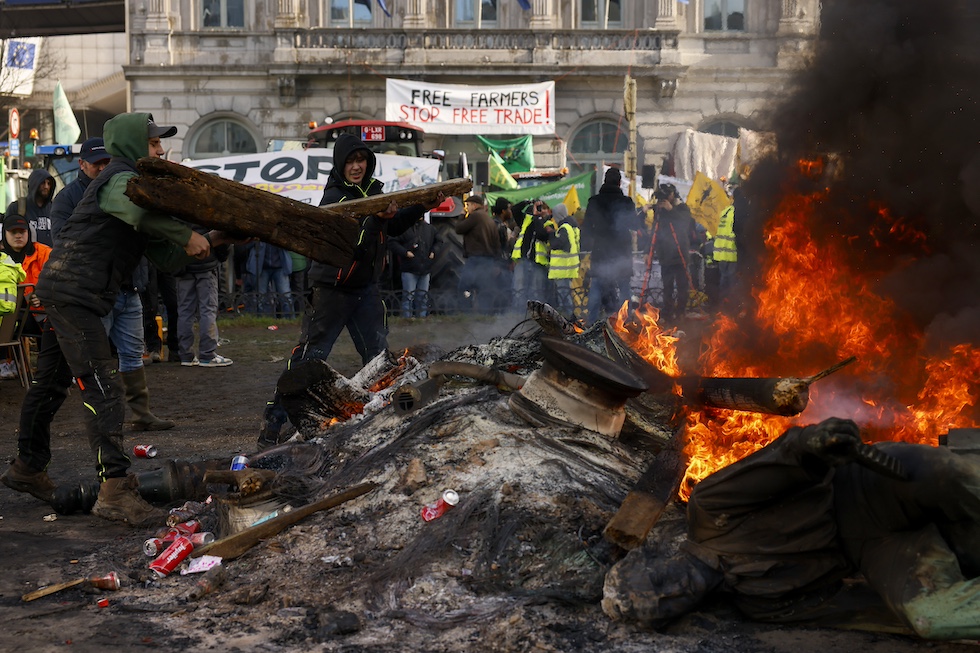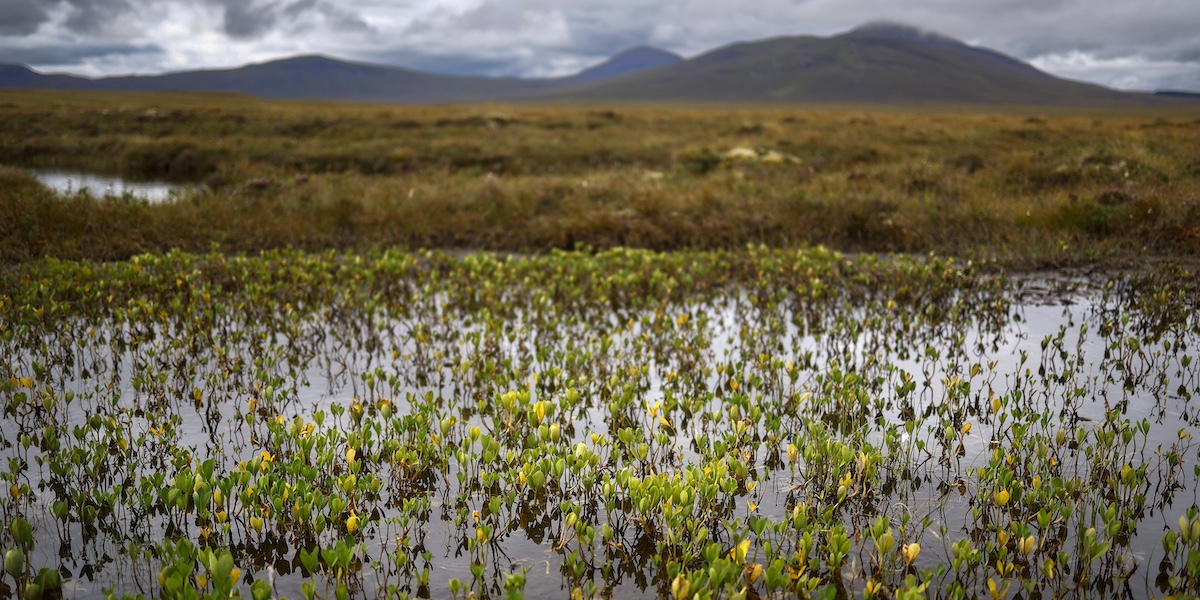For nearly two years, the European Union has been trying to approve the bill Nature Restoration Act, Important together Environmental protection rules. In an attempt to find a compromise between the demands of different Member States, the law has already been amended several times and its current version is considered much less ambitious than the original and more accommodating to the requests of governments less concerned with environmental issues. . Despite this, a large number of countries are still opposed to it: last Monday a vote was scheduled in the Council of the European Union, the body that along with Parliament has legislative power, but it was postponed at the last minute precisely to avoid what might happen. . It seemed like a certain failure.
The postponement further complicated the process of passing the law, which was already very long and arduous, and raised doubts about the possibility of its approval before the next European elections, scheduled for the beginning of June.
First version of Nature Restoration Act (Nature Restoration Law) was introduced by the European Commission in June 2022. It is a very broad law, which advice Protect 20 percent of the Union's land and sea area by 2030, to prevent commercial exploitation, and gradually extend protection to all ecosystems by 2050. In the original version of the text, specific targets were foreseen for various ecosystems, for example forests and cities and agricultural areas, which were amended during subsequent revisions of the text.
In fact, this law was immediately criticized by many European political forces, and last July by Parliament. He agreed to it Modified Version. At that stage, the so-called “trilaterals” began, that is, negotiations between the Commission, Parliament and the Council of the European Union to find a common position.
Settlement is found Last November, and this is still under discussion: the two goals set for 2030 and 2050 remain valid, but according to many Monitors The final text became a watered-down and less effective version of the original, with many intermediate commitments and objectives eliminated or made non-binding.

Climate activist Greta Thunberg takes part in a protest in front of the European Parliament in July 2023 (Philipp von Dittfurth/DPA)
The new version of the text Has been approved At the end of last February, the European Parliament approved the draft resolution by a majority of 329 votes, 275 votes, and 24 abstentions. Among other parties, the European People's Party (EPP), the largest center-right party in Parliament, voted against it: its German leader, Manfred Weber, also voted against it. Always the opposite To the law under the pretext that its approval would increase food prices and put farmers in difficulties. During the parliament session, the right-wing Conservatives and Reformists (ECR) group proposed an amendment to completely reject the law and stop the approval process, but the request was rejected by 345 votes against and 273 votes in favor.
In recent months, the debate around the law has also been influenced by mass demonstrations organized by farmers in several European countries – including Italy – to protest against the European rules of the Common Agricultural Policy (CAP). Between January and March, farmers made themselves known thanks to numerous protests in which they blocked streets or squares with their tractors, eventually obtaining various concessions, both from national governments and from European authorities.
The protests have created tensions that many governments are now unwilling to risk exacerbating by imposing more obligations and restrictions than the government had anticipated. Nature Restoration Act. A representative of a state against the ruling, he remained anonymous, however Quote From the British newspaper guardian, He said the protests were one of the main reasons he voted against the law: “We cannot say to our farmers: ‘We have responded to all your requests’ and the next day we will introduce new rules that will create inconvenience.”

Farmers protest in front of the European Parliament, last February (AP Photo/Thomas Padilla)
there Nature Restoration Act Provides specific objectives for protecting and improving the sustainability of agroecosystems. RequiresFor example, to increase the presence of “distinctive landscape elements” on farmland, such as trees, hedges or ponds, and to increase the presence of butterflies and birds. He also asks about Repeat By 2050, 50 percent of peat bogs, a specific type of bog in which high biodiversity develops but is often Exhausted To allow other activities, including agriculture. However, the law guarantees that these targets can be suspended if they are believed to excessively reduce the area under cultivation, to the point of harming food production and making it unsuitable for consumption by European citizens.
Despite numerous concessions obtained during nearly two years of negotiations, several EU member states still oppose the law: among them Sweden, Finland, the Netherlands, Austria, Belgium and Poland. Italy also opposes this: Deputy Minister of Environment and Energy Security, Vania Gafa, He said The Italian government “supports” the objectives of the law, but considers the final agreement “unsatisfactory,” especially because of the negative consequences it could have on the agricultural sector.
The text was supposed to be voted on on Monday by members of the Environment Council, the body of the Council of the European Union that includes the environment ministers of member states. However, Hungary had also been added the previous week to the list of opposing countries, making approval highly unlikely: in the end the vote was postponed to avoid what everyone saw as a certain rejection. The Council must approve the law by a qualified majority, that is, by the affirmative vote of at least 55% of the Member States, representing at least 65% of the Union's population.
However, discussions continue. A group of 14 countries supports Nature Restoration ActIncluding Germany, France and Spain, They ask That the rule be approved quickly. But at this point, it is not certain that will happen before the end of the legislative session. In the next European elections, scheduled for June 6-9, conservative parties (generally opposed to the text) are taking their stand. feature Their weight in institutions may increase, making it more difficult for the law to be approved.
Recently, supporters of the text have also pointed to another problem: the apparent inability to pass important legislation to protect the environment. Bargaining risks The Union's credibility on this issue and its genuine interest in issues such as combating climate change and protecting biodiversity are called into question. Irish Environment Minister Eamonn Ryan said: “Abandoning the text now means going to the European elections and saying that the system is not working, that we are not protecting nature, that we are not taking the climate seriously.”

“Reader. Travel maven. Student. Passionate tv junkie. Internet ninja. Twitter advocate. Web nerd. Bacon buff.”




